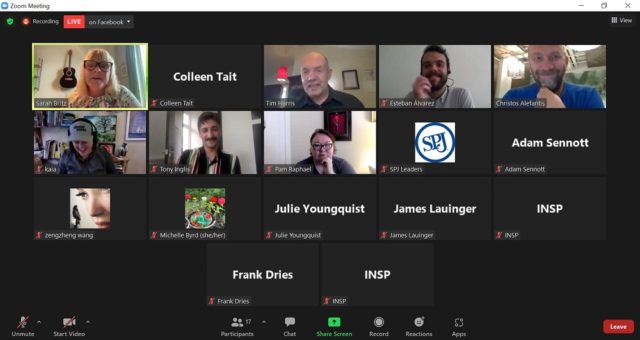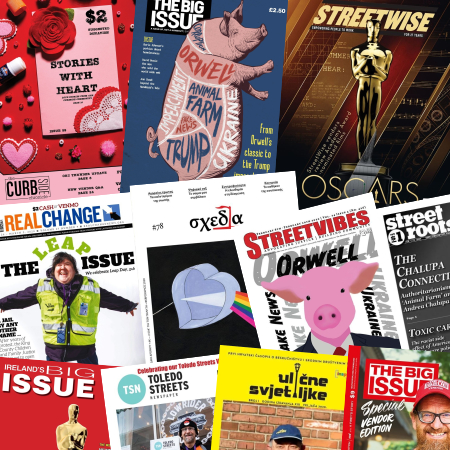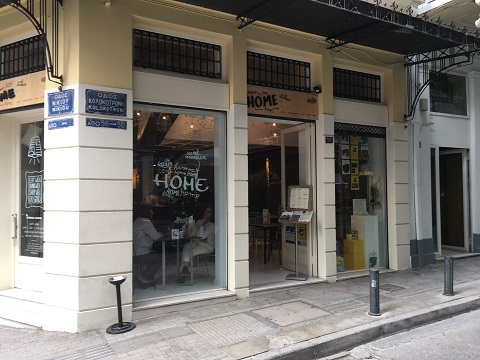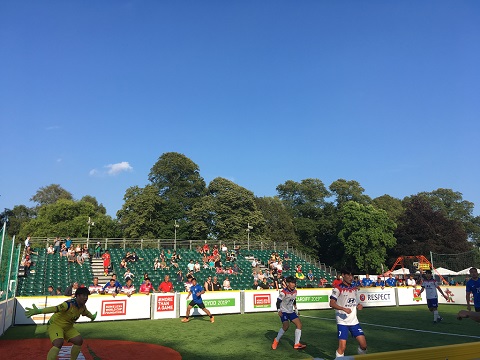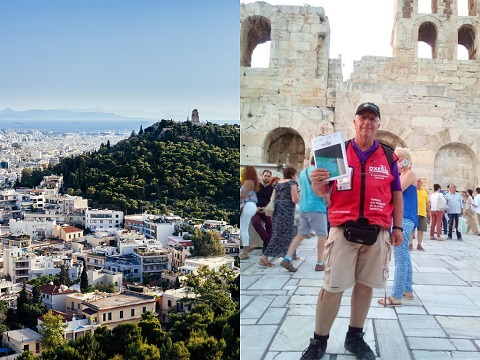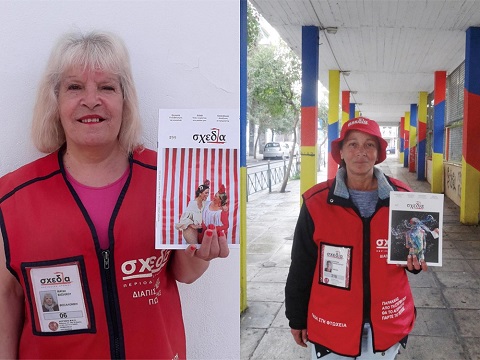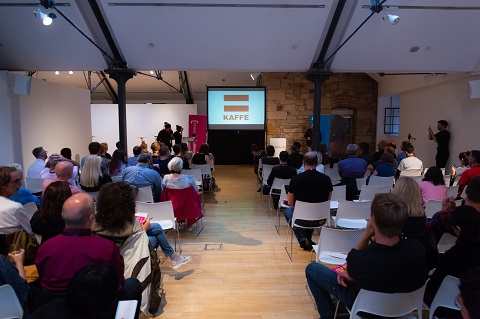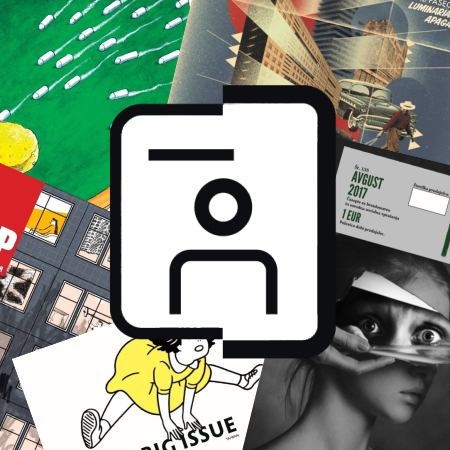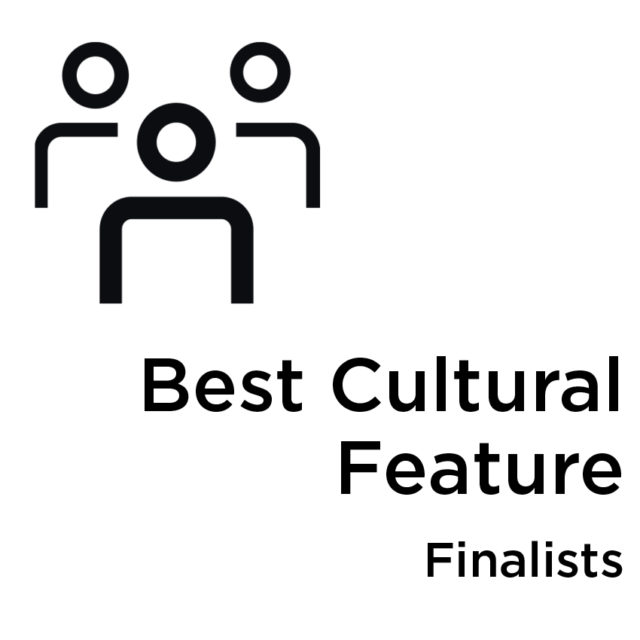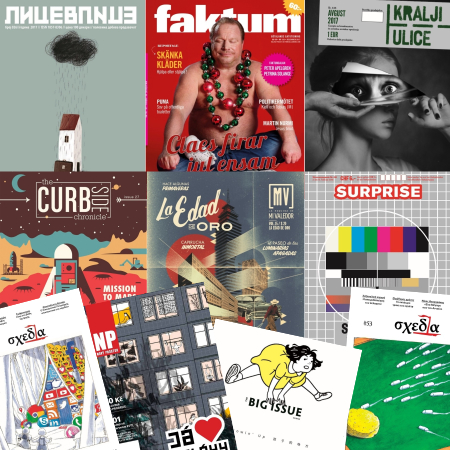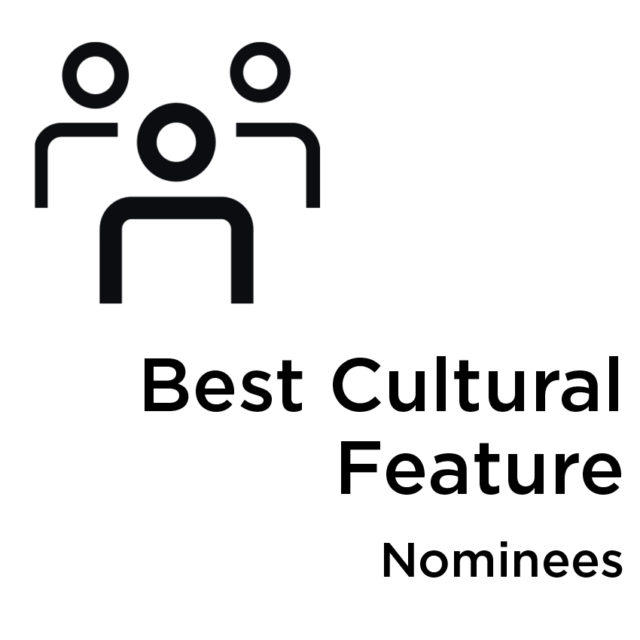By John Dawson, Shedia
For award-winning Greek photographer Yannis Behrakis, the click of his lens means much more than documenting an instant in time. The multi-award-winning photojournalist led the Reuters team that won a Pulitzer for its coverage of the Greek refugee crisis. He spoke to Greek street paper Shedia about his desire to “change the world” one photograph at a time.
Behrakis was born in Athens in 1960. He studied photography at AKTO arts college and received a Bachelor of Arts from Middlesex University in London. He began working for the Reuters news agency in late 1987. He is currently a Chief Photographer at the largest news agency in the world.
He has witnessed all the major events, having covered important stories in Europe, Africa, the Middle East and Asia, such as the wars and civil conflicts in Croatia, Bosnia, Kosovo, Chechnya and the Gulf Wars of 1991 and 2003.

Add to that, his coverage of fighting in Somalia, Sierra Leone, Afghanistan and Kurdistan, the changes in Eastern Europe, unrest in Israel and Palestine, and the funeral of Ayatollah Khomeini in Iran. No major political event in Western Europe has escaped his lens; nor did the devastating earthquakes in Turkey and Iran and the Arab Spring of 2011.
Yannis Behrakis’ work has been published in the world’s major newspapers and magazines, including The New York Times, The Washington Post, The Times of London, The Guardian, Newsweek, Time and others. He has earned dozens of awards in world and European competitions.
His photographs give a voice to the powerless and the afflicted. They make the world sit up and listen, rather than remaining at an indifferent distance. That is why he shoots “with the eyes of his soul.”

How did you get started in photography?
I was searching for what I wanted to do with my life. At school, I was interested in history and I wrote good essays; these were my strong areas. I was just above average in everything else. So, after my military service, I was looking around, doing different jobs, at a factory, in sales and so on, so I could at least be independent and not take money from my father.
And at some point, I came across a Time Life photography book that looked interesting. By working, I was able to pay for a private photography school, which was the only one in Athens then. When I started at the school, it was clear that I liked it and it liked me. It was a love affair with photography.
I was drawn to the magic of having a white piece of paper, putting into a chemical and having an image appear, that you are stopping time, the technique and the technology, the art – all of the magic. It is a form of expression. I was never good at drawing, and it seemed to me that photography was a good form of expression and creativity.
“To be able to change the world through photography. It seemed to me to be a very good goal”
How did you move on from there?
I started working with a cousin who had a photography studio and needed somebody to run errands and help out. He worked with record companies, so we had parties and concerts to go to. It was good; I also like music very much. At some point, though, I got tired of it. There was a lot of glamour and I’m not at all into the glamour. I’m more of a down-to-earth type, a boy of nature; you know, I wear jeans and gym shoes, I’m very casual. [Laughs.]
I found all that phoniness tiring; that you had to pretend to be something and hang around people that you did not necessarily like or respect. Of course, there were some very good people as well. Anyway, I realised that it was not what I wanted to do with my life, so I was looking around.
Then, I saw this movie, Under Fire, a true story about a photographer who secretly takes photos of a journalist being executed by soldiers of Nicaraguan dictator Somoza. He risks his life and goes to the US, the photographs are published, the US changes its foreign policy, Somoza falls and the world becomes a slightly better place.
So when I left the cinema, I said, “Right, that’s what I want to with my life.” To be able to change the world and make it a better place through photography. It seemed to me to be a very good goal.

Is there a similar tradition in your family?
My father was a knight in shining armour. He always helped people in need. He was an officer in the army. He was not a leftist, but he was democratic and very open-minded. During the Greek junta [1967-74], he was imprisoned. I learned good things from a young age. I was involved with the Left as a young man. I was in the student chapter of the Revolutionary Communist Party of Greece, the Marxist-Leninists, until I realised that the guy who was “enlightening” us was with the secret police and I became disillusioned.
That was the last time I was involved with “belonging” somewhere. I have never “belonged” to anything since and I hope I never will again, because it is very important to me to be what I am – a foreign correspondent for Reuters and not to have any affiliation with any political party. For me, this is a fact and I think I have managed quite well. Everyone knows I am a progressive person, open-minded, democratic, but I do not belong nor do I have any dealings with any government. Otherwise, how can you criticise this government or a party as a journalist?
What makes a “good” photograph?
A photograph that stimulates emotions when people look at it – the stronger the emotions, the more successful it is, at least that is true of news photography. That is a simple but very meaningful answer.

What skills should a good photojournalist have?
They must be able to see 360 degrees around them. To listen, to smell, to perceive the surroundings, to have a sixth sense, is what I say. To be able to think ahead to what’s going to happen next. If you actually see it happening, it is too late.
That’s why, when I’m shooting photos, I need to be very focused on my work. Sometimes people don’t understand. They might say, “he’s in his own world,” or “he never talks.” Yes, I am in my own world, which has to do with my work; I am very dedicated, I am completely committed to what I do, so external factors are very often not important to me at all.
Every time I start chatting, I miss out on shots. After all, the job of a photojournalist is to capture that fraction of a second when everything is lined up to create a great photo – including the light and the expression and the instant – everything. You should really have the camera stuck to your face, to your eye and not just be looking around. Or to be completely prepared to know when that moment is coming.
Still, you need to have some depth of soul to choose your subject in the moment…
I have an expression: “I photograph with the eyes of my soul,” which I think is what you are saying, metaphorically. Studying helps in other areas. One way to become a better photographer is to look at photos, to fill your eyes and your subconscious with ideas, forms, etc. But obviously, what you carry inside is also very important.

All of your work deals with painful subjects. Would you like to highlight a pleasant side of life?
I used to shoot concerts. I have shot four Olympic Games and various sports. I think after the 2004 Olympics in Athens, I never did anything else. I do not have any internal need to shoot something different. I have decided to go to these places, to do these jobs at any cost, because obviously there is a cost. This year will be the 16th anniversary of the death of my best friend in Sierra Leone. I mean to say that I carry the scars of hardship on my body and on my soul.
I have chosen to do what I do because I want to relay these messages: “I want to be your eyes. I want to be their voice.” I want to be the eyes of the world in these places and to show what is happening so that nobody can say, “I had no idea.” I believe we should know about these events, which are not at all pleasant, rather than turning our heads away. These are things that are happening in our lives. We cannot close our eyes to reality.
I’m sorry, but reality is there and you have to look at it. Our world has a lot of ups and downs; not everyone is lucky. The fact that we have to live alongside people who are not so beautiful, or gifted, or lucky, or rich, to respect them, and if possible to help them, not to trip them up. That is what I want the world to understand.

Have you ever wondered if your work is worth the effort?
At first, I had very ambitious dreams – I was going to change the world, I would make it better – and I had great expectations of myself, my work and the world. Of course, at some point, I came down to earth, but, no, I have not been disappointed because I have seen a lot of changes.
Saving a person, sending a message to a small community, forcing a minister to resign is no small thing – you change the world. You can’t change the entire world, everything in one day, but by changing little pieces of it, I believe you make it better. And I have done that with my work many times.
All good things in moderation. In other words, every day I change little, or slightly larger, pieces and the world becomes a better place, as I imagine it – as a romantic. I have seen it happen.
Did becoming a father influence the way you work?
I have some colleagues who have never had a family because they are always away. I have tried to do both, because, first of all, I love kids. I have always liked the idea of family. Of course I have sacrificed many things that a proper husband and parent would normally do, and that has resulted in me being married three times. It is not easy to hold on to a family in this job. On the other hand, I try. Now that I am wiser, let’s say, well, things are much better.

What is next for you? Do you have a particular assignment planned?
I don’t have anything very specific. I am taking a break because I am very tired and as I have got older, I have had some issues with my spine. But I have started working with the University of Indiana in the United States as a visiting professor. That is also something that I find very satisfying.
I am interested in teaching in its broader sense. To be able to share my ideas, my experiences, my ethic, my technique – everything – with young people who want to do this job. To teach them to think about this romantic notion of mine the way I do. This particular job is a ‘job’ second – the most important thing is that you are pursuing a vocation.
Eventually, I will have to find other things. I am getting older and I would like to continue to do creative but substantial things. I believe that teaching is a very important profession.
On the other hand, I am also trying to get on a Médecins Sans Frontières boat in the Mediterranean that performs rescues…
Translated from Greek by Danae Seemann.






